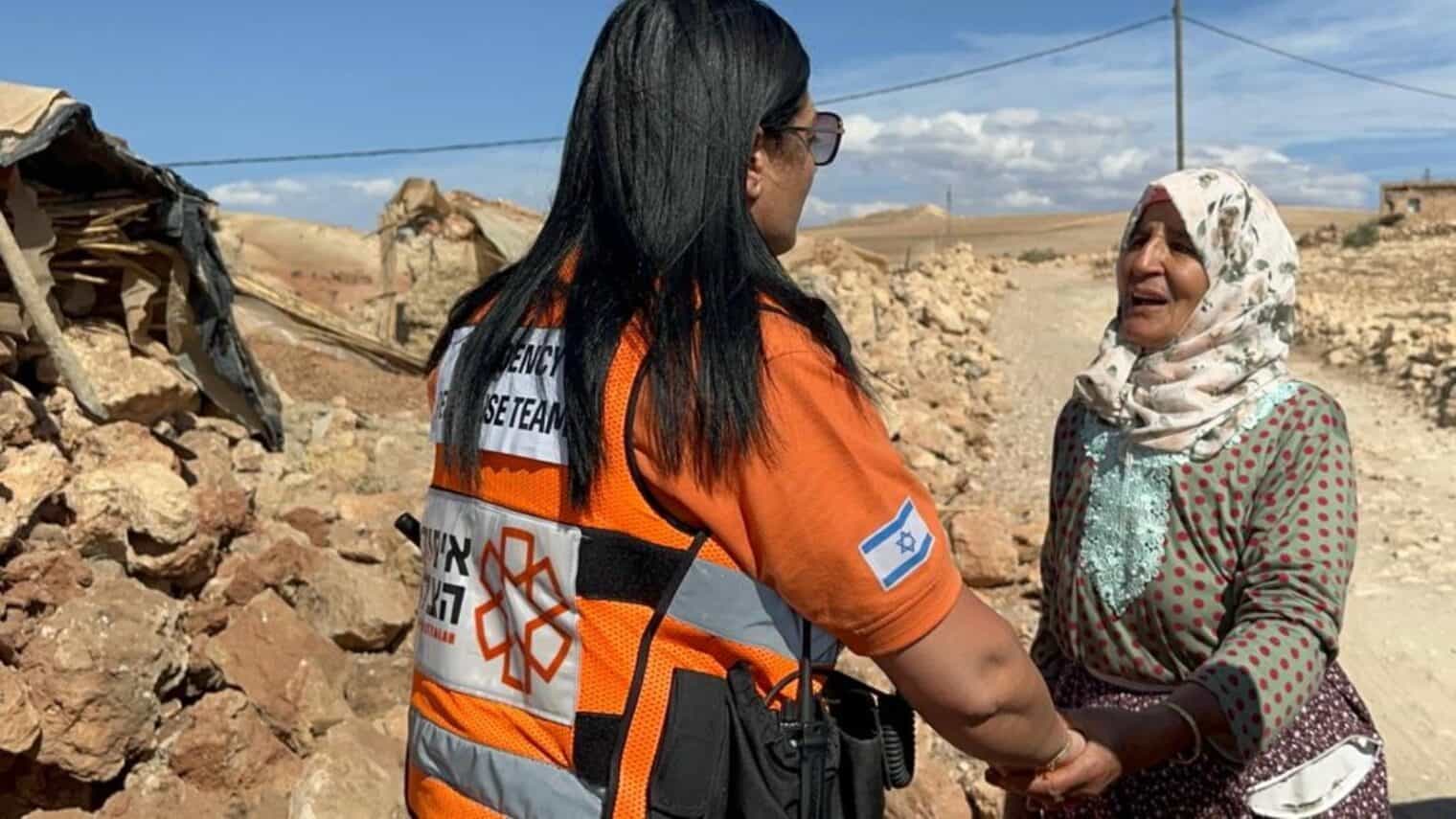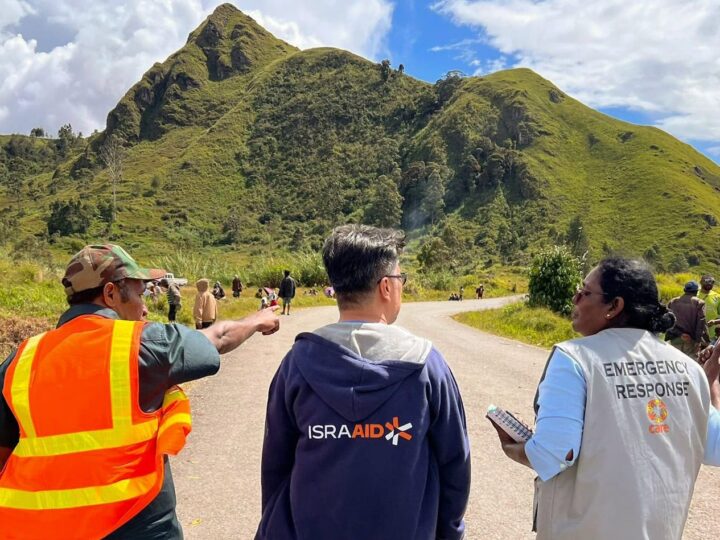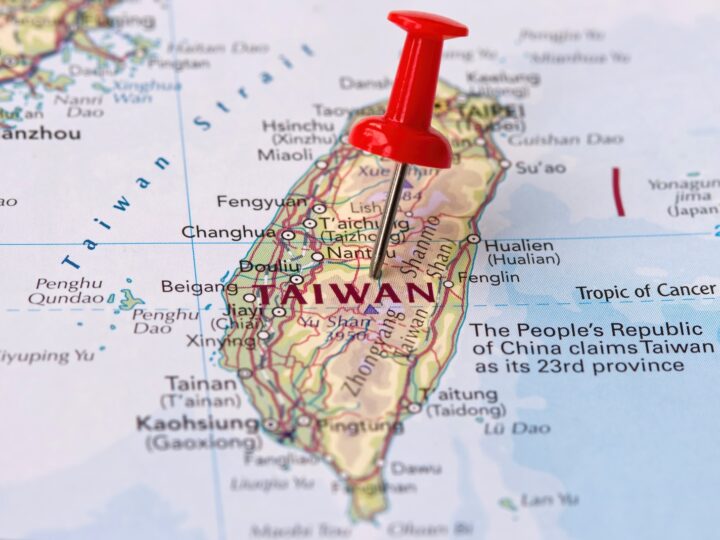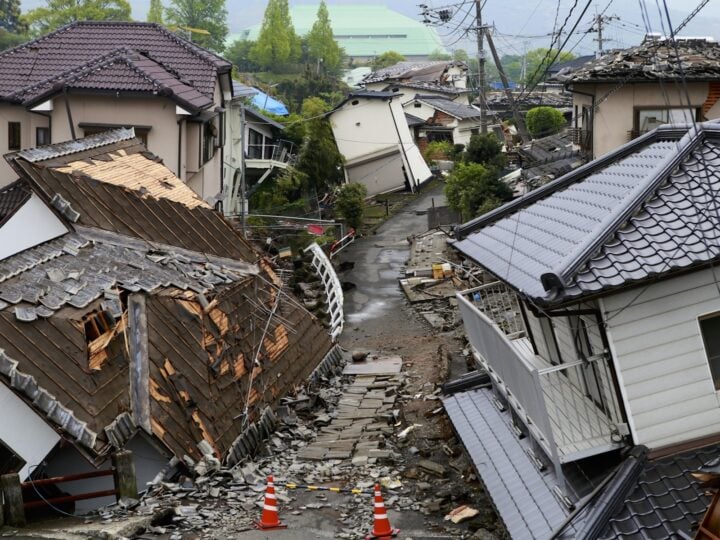Beauty. Chaos.
Those are the words volunteer medic Gadi Ben Meir thinks of first to describe the Moroccan villages where he and other Jewish and Muslim Israelis from Rescuers Without Borders tended people hurt or displaced by the September 8 earthquake that killed more than 2,900 and injured 5,530.
“It’s very pastoral there in the Atlas Mountains,” says Ben Meir. “In this area of very beautiful nature, roads were filled with fallen rocks and villages were totally destroyed. It was chaotic. People were sad and worried.”
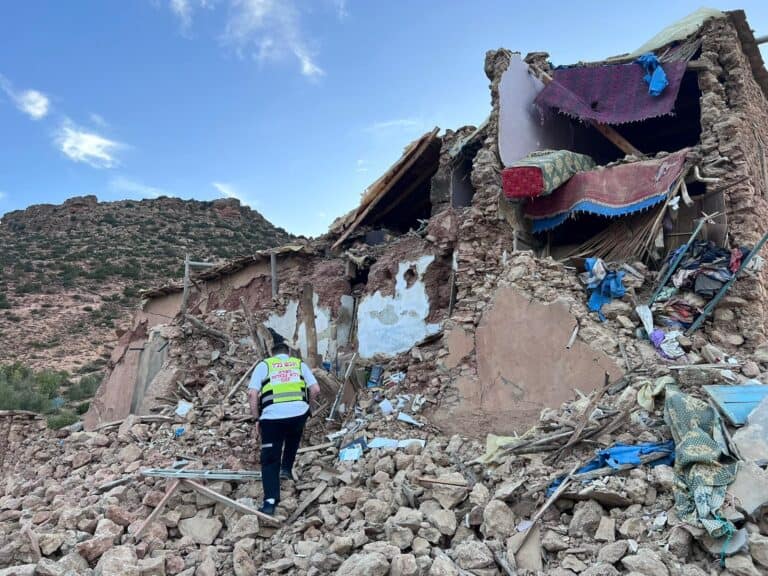
His team, which flew out the night of September 9 and returned September 14 when they were relieved by another delegation, helped hundreds of people.
Ben Meir remembers meeting someone who lost 30 members of his family, a man who lost his wife, a woman who lost her husband, and a young girl rescued from the rubble, among many others.
Working in a tent 12 to 15 hours each day, often until midnight, they treated fractured and sprained limbs and other injuries. Seeing a lack of water, medicines and blankets, they purchased these items in less affected parts of Morocco to bring to those who’d lost everything.
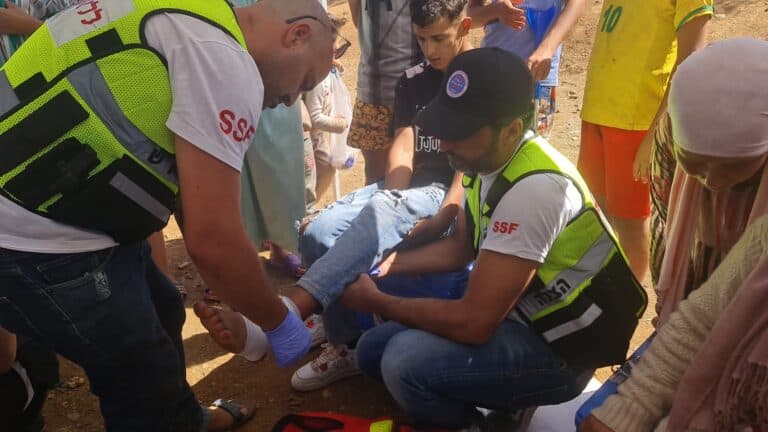
“It was very sad,” says Ben Meir, the son of a Moroccan Israeli.
“On the other hand, you see amazing solidarity in these times. There were volunteers from all over Morocco and many from France, and Moroccans who live abroad came to help. It gives you a lot of faith in humanity.”
Rescuers Without Borders is one of several Israeli groups that flew delegations to Morocco even though the North African country did not formally accept official Israeli offers of aid.
According to the Society for International Development-Israel (SID-Israel), an umbrella organization for Israel action in development and humanitarian assistance, several Israeli groups are assisting post-earthquake Morocco.
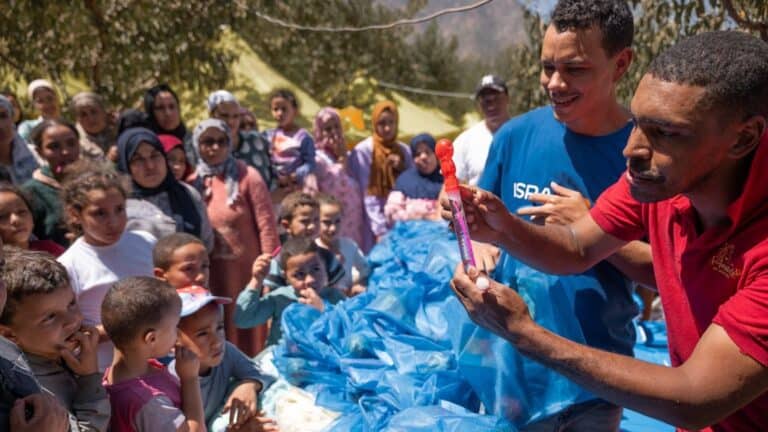
- IsraAID is providing emergency supplies and psychosocial support in Marrakech and the villages in the Al Haouz region, and plans to establish safe spaces for children and women.
- NATAN International Humanitarian Aid is providing medical and psychosocial services in remote village areas near Marrakech, and will fly in medical teams to train local teams and establish clinics.
- SmartAID is distributing essential emergency supplies; installing water systems to prevent waterborne diseases; and setting up solar power and communication systems for aid workers.
- United Hatzalah is setting up medical clinics in the Atlas Mountains in collaboration with local authorities.
- Rescue Without Borders, along with its international counterpart Sauveteurs Sans Frontieres (SSF), is giving medical assistance in the Atlas Mountains in partnership with local NGOs, and aims to establish shelters for the elderly and for pregnant women before the winter.
- Kulna Morocco is fixing up synagogues and Jewish cemeteries damaged in Marrakech.
- Sheba Medical Center’s Humanitarian & Disaster Response Center sent a three-member rapid assessment team to Morocco this week.
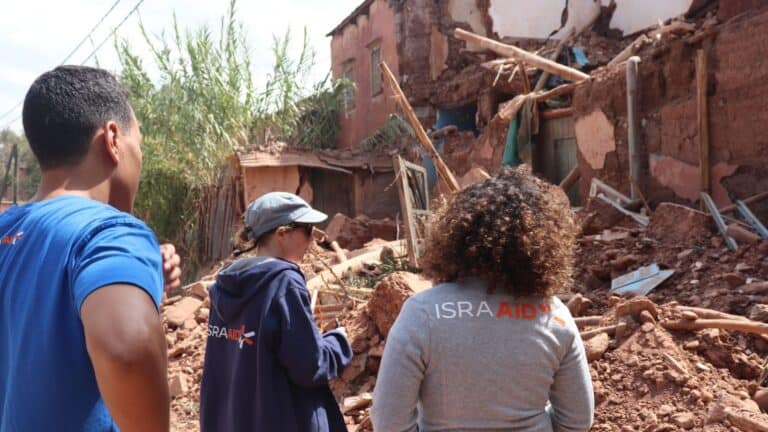
The mission is personal
“Our mission thus far has been a success, thanks to the coordination we had with the authorities here in Morocco,” said United Hatzalah Deputy Director of Emergency Operations Linor Attias.
By September 14, UH’s team of Jewish and Muslim volunteer doctors, EMTs, paramedics, search-and-rescue experts and psychotrauma professionals had established clinics in two villages. They have already treated dozens of people for sprains, broken bones, dehydration, infectious diseases and other conditions.
For one of the volunteers in the group, Sivan Menachem, the mission is personal.
“I lived in Morocco for many years, and my parents are still there,” she explained. “Thankfully they were not injured by the earthquake, but many families were, and I am here to help them. This was something that I knew I needed to do.”
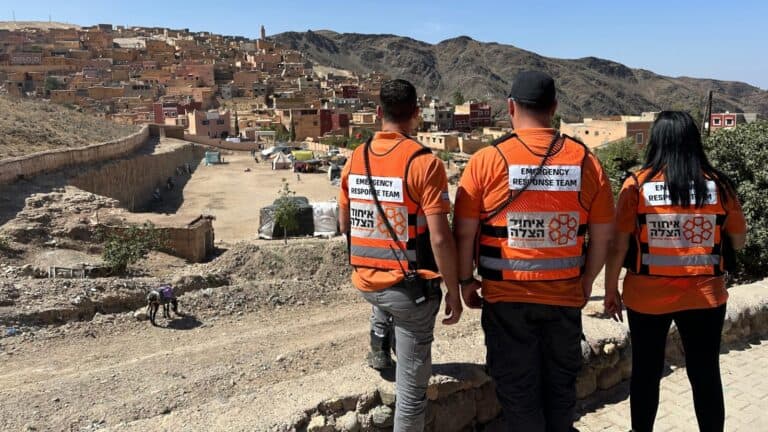
Tons of supplies, water, food
Rescuers Without Borders Vice Chairman and Founder Aryeh Levi led an emergency delegation of doctors, paramedics, medics, and logistics personnel to Morocco.
“During our stay we realized that there was a need to increase the team and we brought in more doctors of the organization from Israel, France and Spain to treat the more complex cases,” Levi reported.
“As part of our assistance, we distributed about 1,000 blankets and mattresses, and 3,500 tons of water and food to families without a roof over their heads. We will continue to work and help as much as we can.”
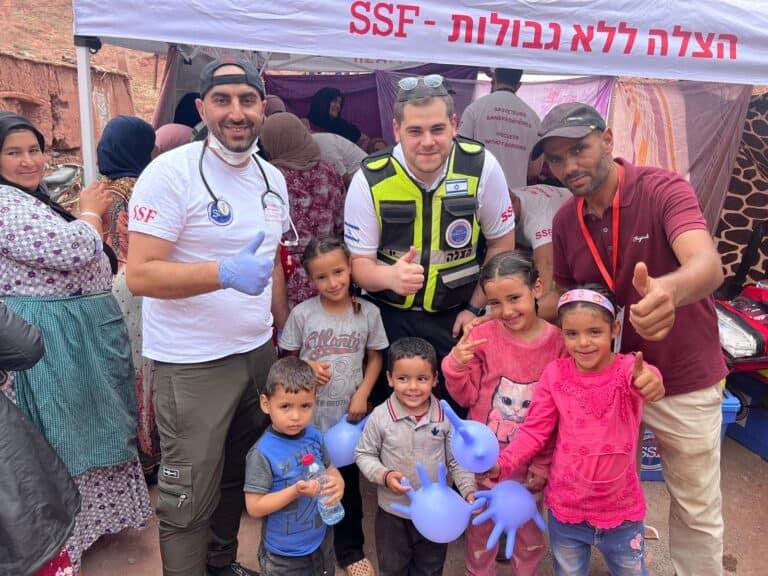
Ben Meir, who works in real estate and medical tourism from Africa to Israel, has volunteered with Rescuers Without Borders since 2016.
“We go to disaster sites around the world and give first aid to people who were injured. We also assist in finding missing people — whatever is needed – always working in cooperation with local NGOs,” he says.
Moving their first-aid tent to different villages each day, the team of four Muslims and six Jews was housed in a Jewish family’s home in Marrakech.
“They treated us like family. In the last two days they also came to assist in the villages,” Ben Meir tells ISRAEL21c.
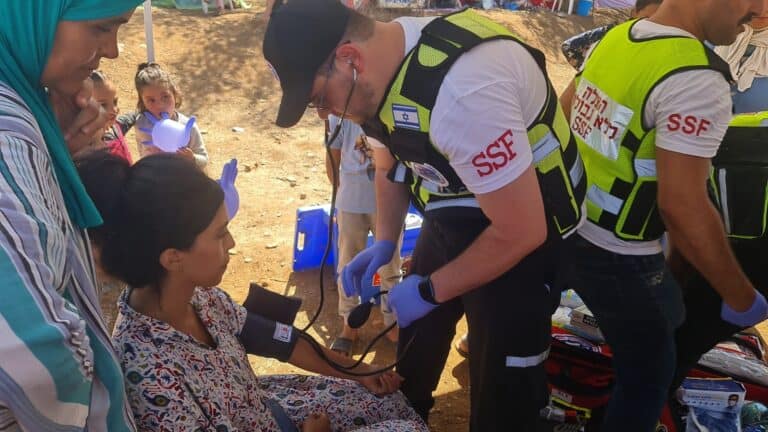
He recalls that while helping in Germany and Belgium following massive floods in 2018, his crew felt uneasy working with the Israeli flag on the arm of their uniforms.
“But in Morocco we were proud and the reaction to us, as Israelis, was amazing. We saw how they appreciate us and love Jewish people. I didn’t feel any antisemitism or hate. It was a big hug from the Moroccan people.”
In one village where they handed out medications, the local imam came and led a blessing of the Israeli volunteers.
“It was so moving,” said Ben Meir, who speaks English, French and some Arabic. “They said so many good things about our helping them and how God will help us.”




